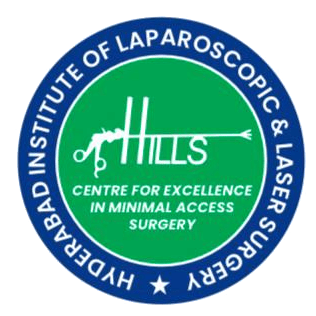Gallstones are a common and often painful condition that can affect individuals of all ages. Dr. N. Subrahmaneswara Babu, a leading Surgical Gastroenterologist and Advanced Laparoscopic Surgeon in Hyderabad, specializes in treating conditions of the gall bladder. Let’s explore the risk factors for gallstones and the diagnostic process:
Are You at Risk of Gallstones?
- Obesity: Being overweight or obese is a significant risk factor for developing gallstones. Excess body weight can lead to increased cholesterol levels in bile, which contributes to gallstone formation.
- Diet High in Saturated Fat and Cholesterol: A diet rich in saturated fats and cholesterol can raise cholesterol levels in bile, increasing the risk of gallstones.
- Rapid Weight Loss: Crash diets or rapid weight loss methods can cause the liver to release extra cholesterol into the bile, leading to gallstone formation.
- Family History: If you have a family history of gallstones, you may be at an increased risk of developing them yourself.
- Age and Gender: Gallstones are more common in older adults and women, especially those who have had multiple pregnancies.
- Sedentary Lifestyle: A lack of physical activity is associated with an increased risk of gallstones.
- Certain Medical Conditions: Certain medical conditions, such as diabetes, cirrhosis of the liver, and Crohn’s disease, can increase the risk of gallstones.
How Gallstones Are Diagnosed?
- Medical History and Physical Examination: Dr. N. Subrahmaneswara Babu begins the diagnostic process by taking a detailed medical history and conducting a physical examination. He will ask about any symptoms you may be experiencing and inquire about your risk factors for gallstones.
- Imaging Tests: Imaging tests are essential for diagnosing gallstones. Dr. N. Subrahmaneswara Babu may recommend an abdominal ultrasound, which uses sound waves to create images of the gallbladder and detect any gallstones. If the ultrasound results are inconclusive or if other factors are at play, additional imaging tests like an MRI or CT scan may be performed.
- Blood Tests: Blood tests can help evaluate liver function and identify any signs of inflammation or infection related to gallstones.
- Endoscopic Retrograde Cholangiopancreatography (ERCP): In some cases, Dr. N. Subrahmaneswara Babu may perform an ERCP to examine the bile ducts. This procedure involves inserting a flexible tube with a camera through the mouth and into the small intestine to look for gallstones and other abnormalities.
Dr. N. S. Babu's Expertise:
Dr. N. Subrahmaneswara Babu’s extensive experience in treating conditions of the gall bladder allows for accurate diagnosis and effective treatment. His utilization of advanced imaging techniques, such as abdominal ultrasound and MRI, ensures that gallstones are promptly detected and managed. If gallstones are diagnosed, Dr. N. Subrahmaneswara Babu’s expertise in laparoscopic gallbladder removal (cholecystectomy) offers patients a safe and minimally invasive surgical option.
Whether it’s diagnosing gallstones or providing comprehensive treatment options, Dr. N. Subrahmaneswara Babu’s commitment to patient care and safety sets him apart as a leading Surgical Gastroenterologist in Hyderabad. If you are at risk of gallstones or experiencing symptoms related to gallbladder issues, consider consulting Dr. N. Subrahmaneswara Babu for expert guidance and personalized care.

